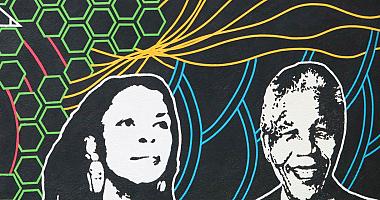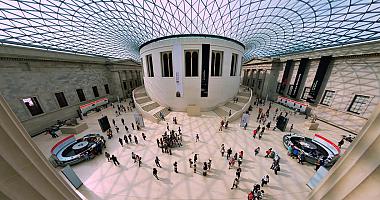MA
Black British History
Content navigation menu
Why study MA Black British History at Goldsmiths
The MA in Black British History is an exciting opportunity to study and research the histories of Africans and African-descended peoples in the United Kingdom.
- Black British history has been at the margins of academia for too long. MA Black British History is the first taught Masters programme in the country to focus exclusively on the histories of peoples of African origin and descent in the United Kingdom. Built by the tireless work of independent scholars and community activists, the field is now growing within UK universities. As a student of MA Black British History, you will make vital contributions to this timely and socially important field of scholarship.
- You will learn about the extraordinary and everyday lives of Black Britons. You will study their lives in context, exploring the historical phenomena that produced Black British subjects and citizens, and the history of places from which Black people migrated – in particular the Caribbean and Africa.
- Key themes include imperialism, slavery and emancipation, and migration. The MA situates Black British history within the histories of the African diaspora and Black European studies and engages with some of the key theoretical interventions of Black studies.
Contact the department
If you have specific questions about the degree, contact Dr Kesewa John.
Length
1 year full-time or 2 years part-time
Fees
Home - full-time: £9150
Home - part-time: £4575
International - full-time: £19000
Department
Connecting you to Black British history
Studying in London gives you the opportunity to explore Black British urban history. You will have the chance to engage with the rich local history around Goldsmiths, while examining Black British experiences outside the capital, introducing a regional approach to Black British history.
We address methodological questions of archival recovery; the historiography on race, racialisation, and racism; and the varied sources – including oral histories and non-written materials – necessary to produce these histories. It attends as well to blackness and whiteness as historically specific, culturally constituted racial constructions.
Focusing on the Black British experience
This degree’s unique focus on the history of the Black British experience contributes significantly to diversifying the curriculum at Goldsmiths and UK higher education. It has a strong outreach and engagement component.
The focus on the Black British experience serves as a healthy corrective to the prominence of US Civil Rights in the teaching of Black history at UK schools and universities. It insists that Black history and histories of race are essential to understanding British history. Britain is reassessed and reconfigured through the histories of Africa, the Caribbean, and North America.
Interdisciplinary insights and synergies
MA Black British History connects with the interdisciplinary research and teaching strengths of the Department of History and Goldsmiths. It creates synergies with other MA programmes. In its close attention to questions of power, the programme joins our MA Queer History in asking how race, sexual orientation, and gender identity have often become interlinked in oppressive ways. There are also synergies with MA Black British Literature and MA Race, Media and Social Justice. You can elect to take a relevant module from these other MA programmes.
What you'll study
Compulsory modules
You will study the following compulsory modules for 60 credits:
| Module title | Credits |
|---|---|
| Explorations and Debates in Black British History | 30 Credits |
| Research Skills | 30 credits |
Optional modules
You will take 60 credits of optional modules from a list available annually from the Department of History.
You may choose one option from another Goldsmiths department or from the University of London via the intercollegiate scheme.
If you choose a 15 credit intercollegiate option module, the required 30 credits can be obtained by undertaking a 15 credit Independent Study Project.
Dissertation
Your remaining 60 credits will be from your dissertation. You will undertake independent research on a theme of personal interest, and you'll participate in a dissertation conference before completing your work over the summer.
| Module title | Credits |
|---|---|
| Dissertation | 60 credits |
Key themes
The emphasis of the MA is on early modern and modern history. The programme features the following themes:
- The long histories of race and racialisation in the British context
- Black British history and the African diaspora
- Histories of slavery and emancipation, colonialism and migration
- Shifting historical understandings of race, citizenship and identity
- Radical Black social movements and organising traditions – from slave rebellions to Black Lives Matter
- Black intellectual worlds, art movements, and media (including radio, television and film)
- Regional histories
- The relationship between Black British history and British history
- The methodologies, ethics and practices
Archival collections
You will have access to extensive archival collections at Goldsmiths and Senate House collections, such as the Black British History Collection in the Institute for Historical Research Wohl Library. You'll be part of the vibrant University of London research community.
Learning support
Your learning will be supported by peers and one-to-one sessions with tutors and supervisors.
Skills and careers
Your future career
The MA prepares students for careers in diversity administration in private business, government, charities, social work, NGO’s, archives and the education sector. As opposed to primarily theory-oriented subjects like race and ethnic studies, the programme lays a solid empirical foundation in Black British history. This provides an excellent basis for a range of careers in and around issues of diversity.
The programme also prepares students for careers in journalism and the media, especially where students chose to study optional modules from the MA Race, Media and Social Justice (run by Media, Communications and Cultural Studies and Sociology).
The programme supplies general history skills in data gathering and analysis as well as effective written and spoken communication. These are skills that can be transferred into a wide variety of domains, from private business to the education and NGO sector. Opportunities also exist within the Careers Service’s Mentoring Scheme for Black, Asian or Minority Ethnic students.
The Masters also provides a gateway to further postgraduate research (PhD) study and careers in further and higher education.
Skills
The MA Black British History develops a range of transferable skills that are highly relevant to a range of careers and areas of employment. These include:
- Advanced research and analytical expertise
- Increased independence of thought
- The ability to evaluate and communicate, in written and oral form, complex information and ideas
- Project management
- Teamwork
Partnership opportunities
The programme envisages partnerships with the Black Cultural Archives and the George Padmore Institute, which could facilitate career development opportunities such as placements and internships.
A similar partnership with Goldsmiths Special Collections provides opportunities for research placements. Goldsmiths Special Collections hold numerous collections relevant to Black British history, including the Women of Colour Index 1985-1995 (relating to individual Black women artists working in the UK), Kenneth A. Gourlay Collection (of folk and traditional music from Africa), Future Histories (Black theatre and carnival archive), and the Vic Seidler, Ben Gidley and Andrew Goodman collections (on late 20th-century society and social movements).
Entry requirements
Students should normally have, or expect to gain, a degree of at least upper second class standard in history or another appropriate subject, or be qualified by previous experience and be able to demonstrate the ability to work at Masters level.
Applicants who are not graduates, or who have a degree in an unrelated field or any other candidates may be subject to a qualifying examination in the form of essay work.
International qualifications
We accept a wide range of international qualifications. Find out more about the qualifications we accept from around the world.
If English isn’t your first language, you will need an IELTS score (or equivalent English language qualification) of 6.5 with a 6.5 in writing and no element lower than 6.0 to study this programme. If you need assistance with your English language, we offer a range of courses that can help prepare you for postgraduate study.
Fees and funding
Annual tuition fees
These are the PG fees for students starting their programme in the 2025/2026 academic year.
- Home - full-time: £9150
- Home - part-time: £4575
- International - full-time: £19000
If your fees are not listed here, please check our postgraduate fees guidance or contact the Fees Office, who can also advise you about how to pay your fees.
It’s not currently possible for international students to study part-time under a student visa. If you think you might be eligible to study part-time while being on another visa type, please contact our Admissions Team for more information.
If you are looking to pay your fees please see our guide to making a payment.
Funding opportunities
Explore the Goldsmiths scholarships finder to find out what funding you may be eligible for.
If you are a UK student you may be eligible for a postgraduate loan.
Meanwhile our Careers Service can also offer advice on finding work during your studies.
Paying your fees
Find out about paying your tuition fees.
Additional costs
In addition to your tuition fees, you'll be responsible for any additional costs associated with your course, such as buying stationery and paying for photocopying. You can find out more about what you need to budget for on our study costs page.
There may also be specific additional costs associated with your programme. This can include things like paying for field trips or specialist materials for your assignments. Please check the programme specification for more information.
How to apply
You apply directly to Goldsmiths using our online application system.
To complete your application, you will need to have:
- Details of your academic qualifications
- The email address of your referee who we can request a reference from, or alternatively a copy of your academic reference
- Copies of your educational transcripts or certificates
- A personal statement
- A 1,000-word essay – please write a short essay identifying the significance of any single primary source related to your own research interests for your proposed programme of study at Goldsmiths. In addition to the primary source, you must use at least one secondary source to support your analysis. Please use either Chicago or MHRA citation style.
You'll be able to save your progress at any point and return to your application by logging in using your username/email and password.
When to apply
Initial deadline: 31 March
Applications received after this date will be considered up to 31 July.
We encourage you to complete your application as early as possible, even if you haven't finished your current programme of study. It's very common to be offered a place that is conditional on you achieving a particular qualification.
Late applications will only be considered if there are spaces available.
If you're applying for funding, you may be subject to an earlier application deadline.
Further guidance
Read our guide to applying for a postgraduate degree at Goldsmiths.



.jpg)

